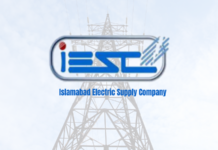Pakistan has been ranked last among 148 countries in the World Economic Forum’s (WEF) Global Gender Gap Report 2025, marking a continued struggle with gender inequalities, particularly in economic participation and political representation.
The country’s overall gender parity score declined slightly to 56.7%, down from 57% in the previous year, reflecting a second consecutive drop.
The annual report assesses gender equality across four key dimensions: economic participation and opportunity, educational attainment, health and survival, and political empowerment.
In terms of economic participation and opportunity, Pakistan’s score dropped by 1.3 percentage points, exacerbated by growing income and wage gaps. The report highlighted a small rise in income disparity and a four-percentage-point increase in perceived wage inequality.
According to a 2024 World Bank report, women make up just 22.8% of Pakistan’s workforce, with their representation in leadership and managerial positions remaining notably low.
Pakistan’s performance showed modest improvements in educational attainment, with a 1.5 percentage point increase in parity, raising the score to 85.1%. This improvement was driven by a slight rise in female literacy, which increased from 46.5% to 48.5%.
However, the report notes that much of the increase at the university level was due to a decrease in male enrolment, rather than a substantial rise in female participation.
The report also pointed out a decline in political empowerment, with the parity score dropping from 12.2% in 2024 to 11% in 2025. While women’s representation in parliament rose slightly by 1.2 percentage points, the proportion of women in ministerial roles fell to zero, down from 5.9% the previous year.
Despite these setbacks, the WEF report noted that Pakistan has made some progress, closing 2.3% of its gender gap since 2006. However, the country continues to face significant challenges in creating equitable opportunities for women, especially in the political and economic spheres.
























